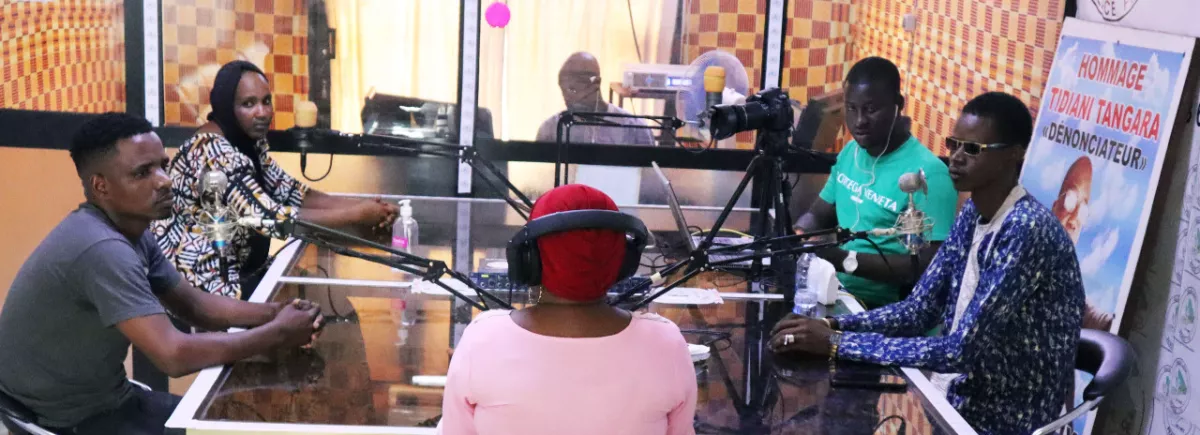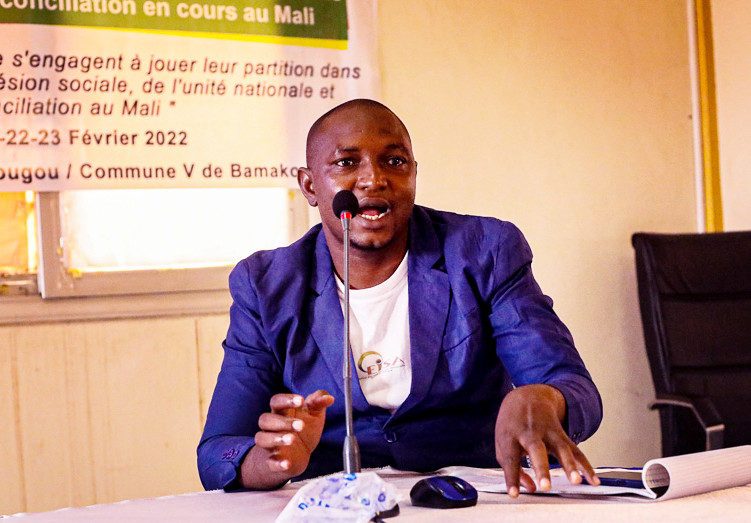
Young people in Mali work to promote peace and reconciliation
Related project
MediaSahelAccording to the monitoring matrix published by the Malian government, there are more than 370,000 internally displaced persons in the country. Association Noyau Dur pour la promotion de la justice transitionnelle au Mali (Noyau Dur association for the promotion of transitional justice in Mali, “AND”) has launched a 4-month mini project with the aim of encouraging young displaced persons to take an active role in the ongoing peace and reconciliation process.
Some people have told us that our training taught them how to accept other ethnic groups. Others learnt that Mali will only be able to rebuild itself if we work together, hand in hand, explains Drissa Niankilé, AND President. This project has enabled us to rebuild the confidence of certain young people who have been driven from their homes in Bamako, Ségou and Mopti, he adds.
This project, which is entitled “Participation des jeunes déplacés par la crise au processus de paix et de réconciliation au Mali (Participation of young people displaced by the crisis in Mali’s peace and reconciliation process)”, is one of seven citizen initiative projects selected by MediaSahel, all of which promote social cohesion and the inclusion of young people, women and marginalised groups.
Video messages and discussions/debates on social cohesion
Twenty young internally displaced persons, including 12 young women, received training on how to use poetry to incite a return to peace and promote togetherness. They produced 20 video clips advocating hospitality, the acceptance of others, peace, tolerance and forgiveness, and posted them on social media. They also hosted discussions and debates on social cohesion among their peers at two camps for internally displaced persons.
Drissa Niankilé considers actions promoting social cohesion and inclusion to be noble. However, he believes that it would take a long-term project backed by significant funds to complete the initiatives and see greater progress towards peace and reconciliation. This would mean more areas in need could be reached.

According to Drissa Niankilé, training on media use would benefit AND’s advocacy campaigns promoting togetherness.
Niankilé Drissa
The association intends to consolidate the progress made by the project by continually enhancing young displaced persons’ conflict prevention and management skills and their ability to live together. It also hopes to establish advocacy committees and to continue the awareness-raising sessions.
AND was established in 2019 to uphold human rights. It primarily works in four key areas: the promotion of human rights, transitional justice, democracy and citizenship, and peace-building.


